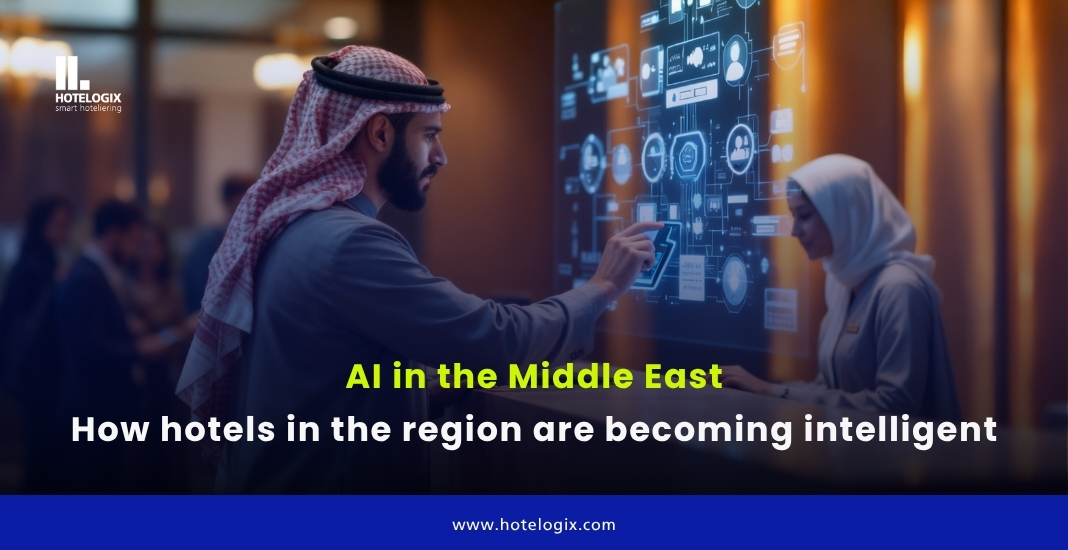

In 2025, hotels across the Middle East, encompassing key markets like the UAE, Saudi Arabia, Qatar, and Bahrain, are witnessing a paradigm shift powered by Artificial Intelligence (AI). With AI, they are not just optimizing hotel operations but also redefining the essence of guest engagement and service personalization. Let's dig in deeper to know more.
Making guests happy with AI
AI deployment ranges from automated customer interactions to predictive maintenance and revenue management, making hotels more efficient while enhancing the guest journey. Several reports indicate that about 70% to 80% of hotels, mainly in the luxury and midscale segments across the Middle East, have invested in AI to offer smart rooms and boost guest experiences.Now, let's look at what countries across the Middle East are doing with AI.
United Arab Emirates
In the UAE, AI adoption in hospitality is not just widespread – it's strategic and in line with the country's National Strategy for Artificial Intelligence 2031.As of now, about 80% of routine guest inquiries are handled by chatbots, freeing up staff to attend to guests' needs with a personal touch. It has also resulted in around 15%–30% increases in direct bookings and up to 50% cost reductions. Luxury chains in Dubai and Abu Dhabi are integrating AI across the guest journey – from pre-arrival personalization to post-checkout sentiment analysis.
Kingdom of Saudi Arabia
AI adoption among Saudi Arabia's hotels is driven by the nation's Vision 2030, aiming to fast-track the growth of the tourism sector through technology-powered guest experiences and operational efficiency. In 2023, Saudi Arabia introduced new regulations encouraging the integration of robotic technologies within the hospitality industry.The policy requires that all newly constructed hotels include at least one AI-enabled service feature, positioning automation as a foundational element of the Kingdom’s next-generation hospitality infrastructure.
Qatar
In 2025, Qatar’s hotel industry is witnessing a sharp rise in AI deployment, powered by an unrelenting focus on personalization and operational excellence. From smart chatbots managing guest interactions in real time to intelligent systems optimizing energy use, staffing, and housekeeping workflows, AI is now the preferred tool to execute everything.Bahrain
Bahrain's National AI Strategy supports hotels in leveraging AI to offer a personalized guest experience and enhance overall productivity. Additionally, leading hotels are using AI-driven RMS to optimize rates, chatbots to handle 24/7 guest queries and upsell, and back-office automation tools to optimize staffing and more. Early adopters have reported several benefits, including RevPAR/revenue uplift, cost savings, and a boost in occupancy.Essential AI capabilities
- Helps
with dynamic pricing, demand forecasting, and labor optimization.
- AI-powered
chatbots are the most common use case.
- It
unifies data across OTAs, PMS, and CRM systems, ensuring consistent guest
profiles and preferences.
- It automates repetitive tasks such as training new staff about hotel internal policies, marketing content creation, etc., freeing staff for high-value guest interactions.
In short, AI in Middle Eastern hospitality is no longer just an emerging
trend; it is happening now with full force. Hotels from Dubai to Doha are
leveraging this to operate intelligently. The next couple of years are about
scaling what already works: dynamic pricing that protects margins, automation
that frees staff for high-value service, and predictive insights that turn
stays into loyalty.
-(1).jpg)






